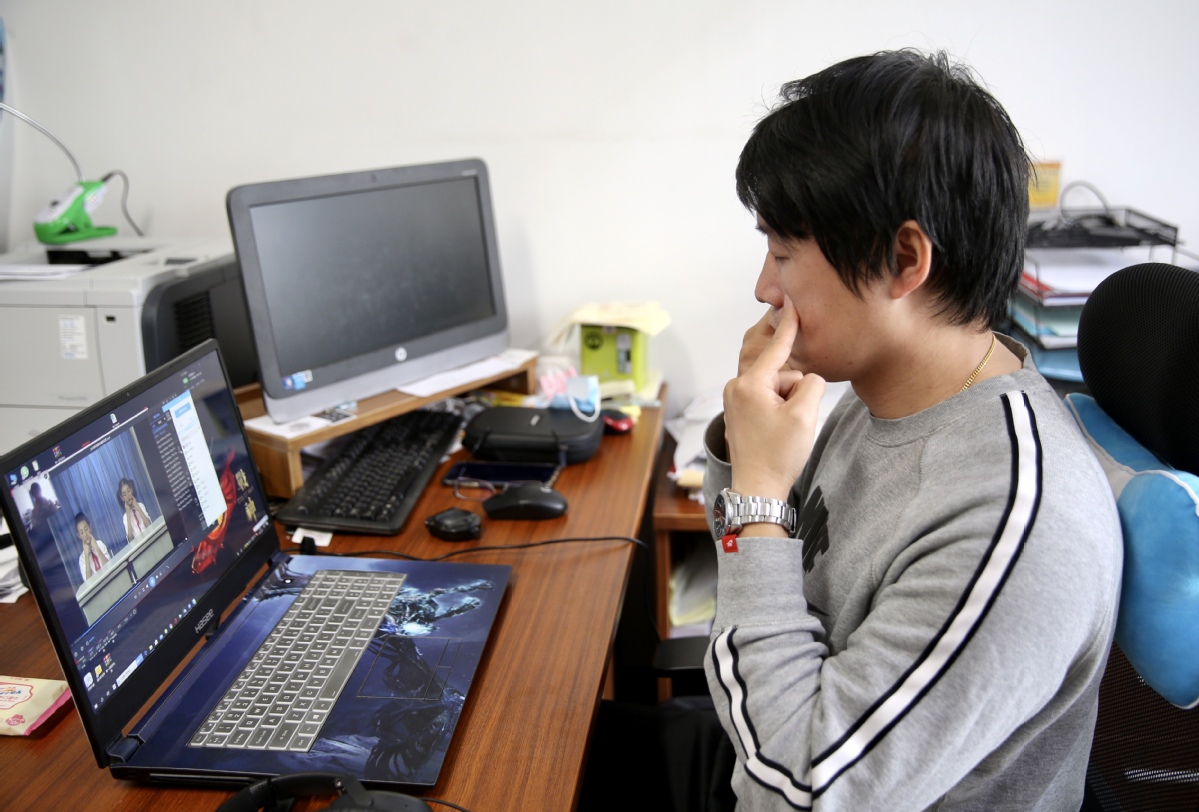Devil? Angel? Jury's out on edu-tech


Older friends who are parents of school-going children readily jumped on the online education bandwagon as soon as the regular schools remained shut even after the Spring Festival holiday in late January, due to the COVID-19 outbreak.
Some of them called the new alternative "white light", a buzz-phrase for an angel that saves many people. After all, online learning seemed the perfect solution in the circumstances. It helped the homebound kids to learn and kill time, without proving to be handful for the stressed-out parents.
But, others sounded exasperated after a few days, and complained about the disadvantages of online education. Studying online didn't create the same effect as regular schooling did, they argued.
E-learning, they added for good measure, had to be complemented by parental supervision and home-based support ("oh, lay that cable, sort out this broadband Wi-Fi connection, install that projector, add this webcam, adjust the smart speaker, move that screen, increase the volume, reduce brightness, sharpen the focus... Arrghh!").
So, what is it then-an angel or a devil?
Not an easy question to answer, given that China leapfrogged to a largely "cashless" society in just a few years.
Consider this: Not very long ago, Beijing's veteran taxi drivers with over 30 years of experience wouldn't accept mobile payments. Some of them didn't even use smartphones, leave alone real-time online mapping and navigation services. And today? No one prefers cash.
A similar dynamic is conceivable in the development of online education. Technologies like artificial intelligence, 5G and cloud computing are expected to ensure that online education becomes widespread and widely accepted.
Problems experienced by teachers, students and parents can be attributed to the nascent phase of e-learning in China. Even good habits take some time to form. Let's not overlook the fact that COVID-19 has hastened the dawn of the mass-scale online education sector by at least 10 years.
Just as we can now order food, book cab rides, buy movie tickets and other things, or hold video conferences using a mobile phone or a PC, we should be able to learn anything online, as technological advances are rapid these days.
Even music concerts are now par for the online course. Online karaoke platform Changba said it plans to hold a live online session with Modern Sky, one of China's largest independent record companies. This could become not only a trend but a new live music delivery channel after the epidemic.
Currently, businesses, schools, governments, real estate agencies, zoo managers and even singers and musicians are among those who have increased their online usage. It's perhaps inevitable that students and teachers will soon become permanent parts of that list.
"In the long run, the outbreak will speed up the integration of online and offline educational services. Education that is a mix of online and offline experiences will be preferred," said Zhang Lijun, an education sector veteran and partner at Sinovation Ventures, a venture capital company founded by prominent investor Kai-Fu Lee.



































